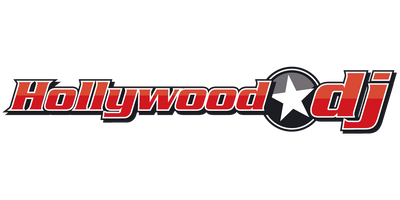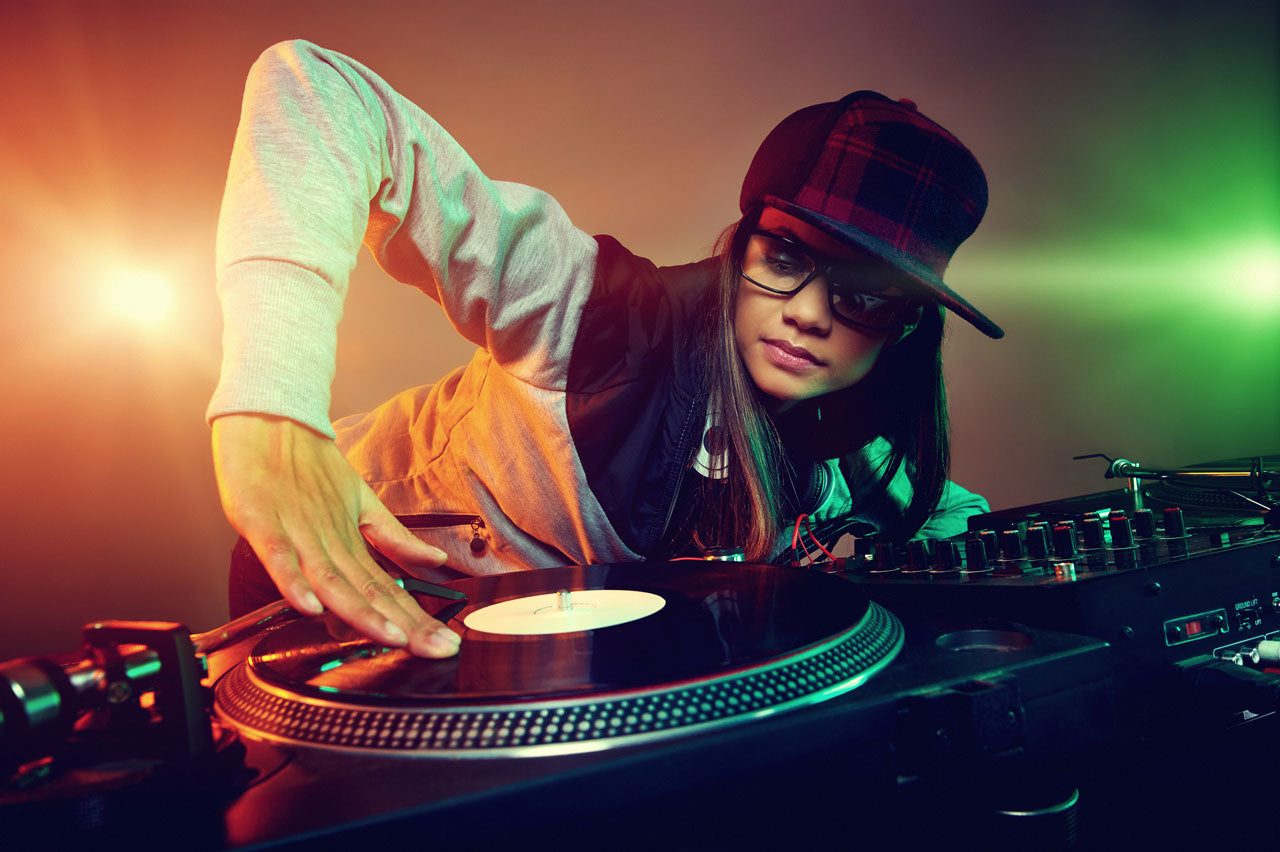Getting started as a DJ is a daunting task, especially when it comes to buying DJ equipment. There are a lot of options at a lot of different price points, and most beginner DJs don’t have endless expendable cash, so they need to make sure they’re buying the right products. Read through this beginner’s guide to DJ setups to learn everything necessary to make informed decisions and invest wisely.

Basic Setups
Modern DJs have two main options when it comes to getting set up for practice, recording, and playing out. They can either go fully digital, using a laptop computer and DJ software, or they can keep it traditional and use vinyl records. Traditional DJs will need to purchase more equipment up-front, but they’ll also have far more creative options.
Regardless of which direction novice DJs decide to go with their setups, they should invest in high-quality equipment as early on in the learning process as possible. Just like it’s difficult to learn how to play acoustic music on a cheap, poorly made instrument, it’s much harder to learn the basic skills required to be a DJ using a setup that doesn’t allow for maximum creative freedom. There are plenty of good options in just about any price point as long as buyers do their due diligence.
Going Digital
For those who already have a decent laptop, going digital is usually the cheapest option. All aspiring DJs will need is a computer, the right headphones, an audio interface, and specialized DJ software.
Pros of Going Digital
There are a few advantages to setting up a laptop with DJ software for newcomers to the industry. Here are a few of the top advantages:
- Most people already have computers capable of running DJ software, so it can be less expensive.
- It’s the most compact option.
- Digital DJ setups are more portable.
- They can be set up with audio interfaces, although it’s not strictly necessary for those who are just learning.
- Some novice DJs find it easier to learn the ropes with digital setups.
Cons of Going Digital
Not everyone loves digital setups. Many professional DJs prefer to keep things analog, and almost any serious DJ will eventually want to invest in turntables and a mixer. Here’s why:
- Digital systems offer much less creative freedom since they don’t use controllers.
- Some people in the scene don’t take strictly digital DJs as seriously, so it may be harder to get gigs.
- Going digital-only doesn’t let novice DJs learn about and participate as fully in the rich history of the industry.
Buying Analog Equipment
Sticking with an analog setup may cost more up-front, but it’s still the preferred option for DJs who want to go as far as possible with their new careers. Traditional, analog setups usually include, at a minimum, turntables and DJ cartridges, slipmats, headphones, a mixer, an RCA cable to connect the mixer to the audio output, and a large selection of vinyl records. This may sound like a large investment, but for many, it’s the best option.
Pros of Buying Analog Equipment
For some DJs, the aesthetics of a full analog setup are enough to motivate their purchase decisions. For others, practical concerns outweigh aesthetic benefits. Here are a few of the biggest benefits of investing in an analog DJ setup:
- It’s the most tactile form of DJing.
- Buying analog equipment offers more creative flexibility.
- Newcomers to the industry can buy basic kits, then expand them as their budgets allow.
- Experienced DJs almost always recommend learning how to use analog equipment.
- DJs can use the same equipment for digital production by purchasing additional devices and software.
Cons of Buying Analog Equipment
The fact that most serious DJs recommend starting out with an analog setup doesn’t mean it’s right for everyone. Here are a few factors that might sway newcomers towards buying digital equipment instead of going analog:
- It’s more expensive.
- It’s not good for all styles of DJing.
- Analog setups are less portable.
- Buying and safely storing vinyl records can be expensive and take up a lot of space.
Comfortable Middle Ground
There are a few options available to novice DJs that love the feel of using traditional turntables but want a little more flexibility. Arguably the best of them is to purchase analog equipment and the interface required to connect the equipment to a computer outfitted with specialized DJ software. Some high-end mixers have built-in interfaces, while other digital interfaces can be purchased separately. Analog turntables with digital interfaces require users to buy specialty control vinyl that can be used with DJ software.
Combination analog/digital systems don’t always use vinyl. Some use a combination of CD turntables and MP3s instead. These setups, which require less equipment and offer more control than traditional turntable setups, are preferred by club DJs. DJs can still get tactile control over the music but will have access to plenty of other features not available with analog-only alternatives.
There’s one more Goldilocks setup worth discussing. It’s called a controller setup. This setup allows digital-only DJs to connect their computers to DJ controllers to regain tactile control of their music. Controllers can be customized, are compatible with most types of DJ software, and offer the greatest range of available manipulations. Controller setups are also extremely portable and relatively inexpensive to buy.

Package Deals
Want to get started as a DJ, but don’t have time to investigate every piece of equipment out there? Beginner packages contain everything required to get started as a DJ. Most can also be expanded upon as newcomers to the industry progress in their careers, which makes them sound investments.
The Bottom Line
Learning how to DJ isn’t easy. It takes time, equipment, and a lot of dedication. Getting started with the right equipment can substantially improve newcomers’ learning curves by allowing them to learn the ropes on high-quality equipment that won’t fail in their times of need. When in doubt about what to buy, consult an expert in the industry or purchase a package designed for beginner DJs.


